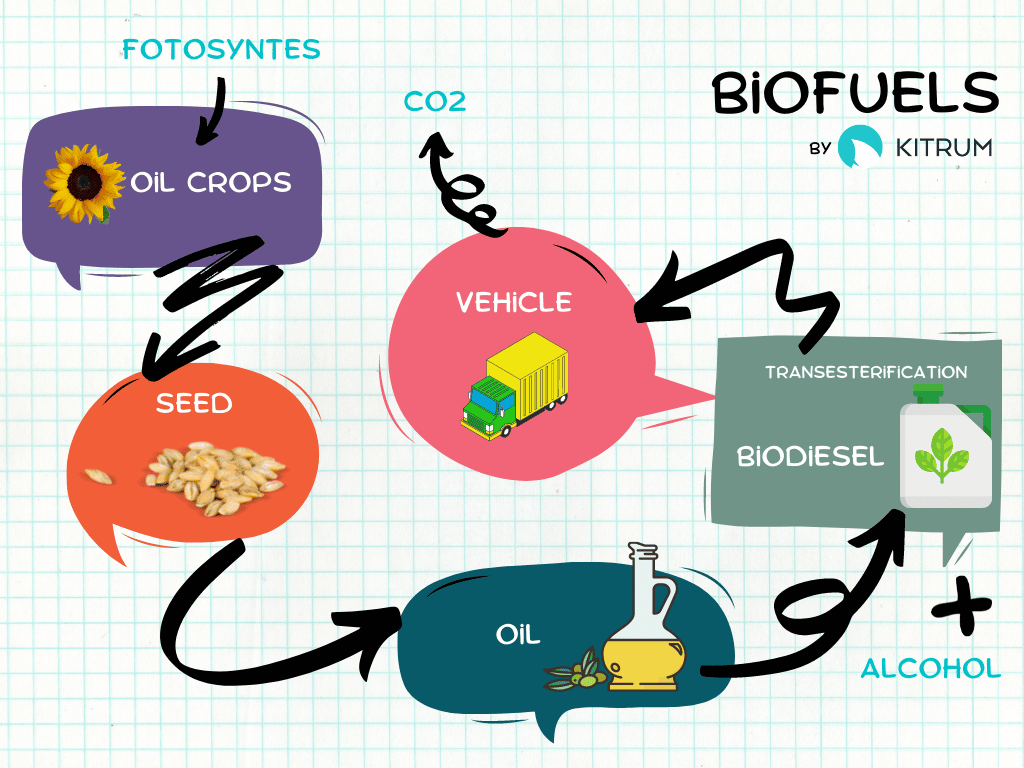How Biotechnology Can Help Solve the Major Energy Crisis in Europe
Just at the beginning of the year, the price of natural gas was already four times higher than the previous year. Nord Stream 2 might have resolved the issue, but due to the poor certifications and new geopolitical conditions, the project is unlikely ever to happen.
The energy crisis was provoked by the restart of economies of the countries coming out of lockdown due to COVID-19. Longer winter in Europe last year eroded gas storage to 74%, while last year it was at 94%. Also, East Asian competition for gas influenced the rise in price.
Russia is the largest supplier of gas to Europe, counting around 40%, as well as 27% of its oil and 46% of coal imports. But recently at the EU summit, European leaders decided to cut the dependence and supplies of Russian gas by 2027.
Dealing with the energy crisis and more challenges to come, many see the way out in using renewable energy sources, such as solar and wind power.
But still, the transformation to green energy requires gradual steps and the start will be providing more capacity mechanisms with gas-fired power plants available and places for storage.
There is one more solution provided by the biotechnical industry, such as the production of biofuel. Biotechnology is also not limited only by the biofuel in the case of energy maintenance: methane produced by the means of microbial can also make a change to energy consumption.
Let’s start by clarifying what biotechnology is and how it can be used in future fuel substitution.
What is Biotechnology?
Biotechnology is the integration of natural sciences and engineering sciences in order to achieve the application of organisms, cells, parts thereof, and molecular analogs for products and services.
The simplest example of biotechnology is brewing and baking bread. Living organisms in natural form are involved in both processes for producing the final product. But the modern forms of biotech involve modification of biological systems and organisms and applied to more complicated processes. Biotechnology is engaged in major industrial areas, such as health care, agriculture, energy, and the environment. There are several branches of biotech working within a specific field.
There are also some general studies, applicable to any field, such as bioinformatics. Its aim is to resolve biological problems with the help of computational techniques, organizing and analyzing biological data. Also, there is so-called violet biotech, which is related to law, ethics, and philosophy concerning biotechnology overall.
Blue technology is researching the sea resources to make products and use in industry, such as the processing of biofuel.
A white branch is also known as industrial biotechnology. It is in charge of producing chemicals with the help of designed organisms, which can result in biofuel or managing organic processes aiming to destroy polluting chemicals.
Green biotechnology works in the agricultural sector. It finds a way to grow plants in specific environments, as well as deals with waste reduction with the help of microorganisms.
Yellow biotechnology deals with food production by fermentation. Gray biotechnology maintains biodiversity and pollution reduction. Brown biotech finds innovative solutions to adapt agriculture and resources maintenance in arid lands and deserts. Dark biotech is used to create biological weapons and is in charge of bioterrorism, which aims to cause the death of people, livestock, and crops.
Medical use of biotech, which is called red, works in the sphere of vaccines and antibiotics production, regeneration, artificial organs production, diagnosis of new diseases, as well as the development of hormones, stem cells, antibodies, and diagnostic tests.
As you see biotechnology can imply to any sphere for finding new solutions to resolve new challenges. When old methods don’t work anymore, science uses all its resources to find the way in a more efficient way. In the current state of the energy crisis using biofuel can also be a tool to solve the issue.
Facts
According to Transparency Market Research, the white biotechnology market will rise at a 4.50% CAGR and its market revenue is expected to reach $262.3 billion by 2024. The segment is likely to maintain its position as the demand for biofuels worldwide will be by 41 billion liters, or 28%, over 2021-2026.
Taking into consideration the tendency to more sustainable consumption, producing fuel in a more eco-friendly way is another advantage of using biotechnology. Biofuel burns cleaner than fossil fuel and is a renewable resource and may be produced of the products which have been considered waste.
The capacity of White biotechnology
The White and Green fields of biotechnology are interrelated, as a lot of microorganisms are used for the production of goods and capacities. White biotechnology is involved in the creation of products demanding chemical processes from biomass. For example, plants, as a biological material, are used to make textile, leather, paper, and cleaning products to substitute inorganic chemicals.
Bioenergy also produces electricity and fuel from the chemical energy in biomass. Bioenergy comes from agricultural byproducts, considered as waste, such as straw, manure, and sugar cane residue, as well as crops of maize, soybeans, and some types of grass, grown for a specific reason. It is also used in power plants and biofuels: ethanol, biodiesel, and bioether.
Biomass is crucial for the production of biofuel. The US Department for Agriculture (USDA) calculated that replacing 30% of transportation fuels with biofuels will demand one billion dry tons of biomass per year. This quantity of biomass can be reached by 2050. Food, fiber, and export demands were taken into account.
The main challenge for biotechnology is an increase in crop cultivation and its development with the necessary chemical and physical traits for energy production. Both should be done in a sustainable way.
Biotechnology can help produce cleaner petroleum and coal by removing undesirable components such as sulfur, nitrogen, metals, and ash. It can also reduce the cost of refining oil and make a positive impact on the environment, by taking down air-polluting gasses coming from the combustion of oil and coal.

Though the technology itself may be costly, the enterprises specializing in biofuels production are gaining experience in providing large volumes of biofuels at a low cost. This may be a turning point for biotechnology worldwide, as well as energy resources usage.
Where the biofuel can be used
Biofuel can be an alternative fossil fuel in many cases covering energy needs for vehicles or heating.
Transport
24% of energy and more than 60% of absorbed oil are used by transport. Bioethanol and biodiesel can substitute the fuel for cars and buses. Major car brands have already invested in producing stations for biofuel-powered vehicles.
Energy Generation
Fuel cells may be used as power generators for electricity. Biofuel can generate power in a backup system where the most important is emission. It can give energy to schools, hospitals, and any buildings in residential areas.
Heating
Natural gas is commonly used in most houses in Western Europe. Biofuels that have been processed in a refinery is a sustainable alternative for heating.
Cooking
As for cooking, biodiesel can become an alternative for kerosene and natural gas.
Oil cleaning
Biofuel can cope with cleaning up oil spills and grease in contaminated waters. Its lack of toxicity can also be used to clean metal as an industrial solvent.
Machinery lubrication
Biofuel can substitute diesel fuel for machinery lubrication. It’s not only an eco-friendly solution but also requires fewer expenses.
The cost reduction of oil import
According to the analyses, replacing oil import with biofuel production is a solution to keep the economy stable when oil is disrupted.
The advantages of biotechnology development on the global scope
Today’s situation shows how many countries are dependent on energy supply and the result of it may lead to major crises in the economy. The income from fossil fuel supplies and expenses for its purchase is an important source of the economic position of the country. Also, it makes one country dependent on others and results in a source of manipulation in geopolitics.
Thus contributing to the development of biotechnology in the energy sector, such as the production of biofuels, will scope the energy supply in a completely different way. It will also bring more balance to the current international trade. Furthermore, it will result not only in the reduction of the expanses, which come from the gross domestic product, to import energy, but also create new jobs for citizens.



